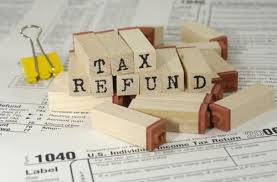Bankruptcy & Your Tax Refunds
When filing a chapter 7 bankruptcy it is important to consider what will happen to your tax refund. The bankruptcy estate is entitled to a prorated portion of your next tax refund and all of your previous tax refund if it was not received prior to filing bankruptcy. The court utilizes a simple formula to determine what portion, if any, of your tax refund must be turned over to the bankruptcy estate. First, your case will be assigned a Trustee who will oversee your case. The Trustee then has to decide if he or she is interested in the tax refund as an asset of the bankruptcy estate. In doing so, the Trustee will first determine what the refund consists of. The Trustee will utilize the courts formula and look at what percentage of the year has passed at the point your case was filed with the court and that percentage is the amount of your tax refund which must be turned over to the bankruptcy estate.
There are strategies which can be utilized to ensure you keep your tax refund. The most important strategy is timing. As long as you play your cards right there is a good chance of keeping your tax refunds. It is important to look at what time of the year you are filing your bankruptcy case and how filing during that time period will impact your tax refunds. You also want to make sure you are not over withholding. Oftentimes, individuals over withhold taxes intentionally so they can receive a large tax refund. When preparing for a bankruptcy it is important to not over withhold as there is a possibility of losing that large tax refund. You should have your attorney guide you through the process, applying your unique circumstances to the applicable laws. To learn more about bankruptcy and the possible tax consequences please contact our office to speak with an experienced attorney.
Disclaimer: The information in this web site is not intended to constitute legal advice or to create an attorney-client relationship. The information, documents or forms provided herein is intended for general information purposes only and must not be regarded as legal advice. Laws change periodically; therefore the information in this site may not be accurate. It is imperative that you seek legal counsel in order to ascertain your rights and obligations under the applicable law and based upon your specific circumstances.





